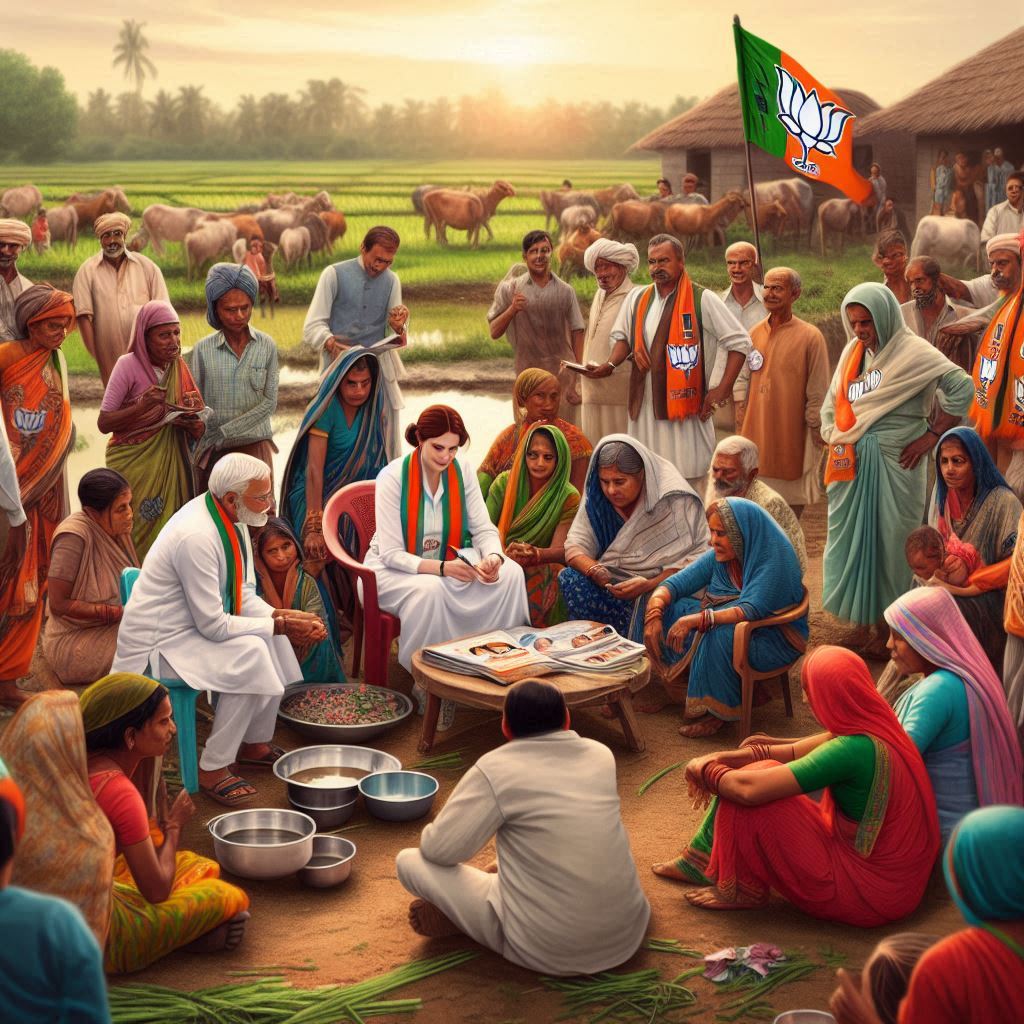
The Bharatiya Janata Party (BJP) has adopted a strategic approach to reach out to Pasmanda Muslims, a marginalized segment within the Muslim community in India. “Pasmanda” is a term used to describe backward, marginalized, and Dalit Muslims, who constitute the majority of the Muslim population in India. This strategy is part of BJP’s broader objective to expand its support base beyond its traditional Hindu vote bank and counter the perception of the party being anti-Muslim.
Historical Context and Rationale
- Demographic Significance: Pasmanda Muslims make up a significant portion of the Muslim population in India, estimated to be around 85-90%. They are often socio-economically disadvantaged and have historically been underrepresented in political and social spheres.
- Political Neglect: Traditionally, Muslim politics in India has been dominated by the upper-caste Ashraf Muslims. Pasmanda Muslims have felt neglected by mainstream Muslim political leadership and parties like the Congress and regional parties, which they believe have focused more on the concerns of Ashraf Muslims.
Key Components of the BJP’s Strategy
- Social Outreach and Engagement:
- Inclusive Rhetoric: BJP leaders have started using inclusive rhetoric, emphasizing development for all communities, including Pasmanda Muslims. The party projects itself as a champion of the economically and socially marginalized.
- Community Leaders: BJP has made efforts to engage with Pasmanda Muslim leaders and intellectuals, inviting them to join the party and participate in its programs.
- Development and Welfare Initiatives:
- Targeted Schemes: The BJP-led government has launched several welfare schemes aimed at economically weaker sections, which include Pasmanda Muslims. Schemes like Pradhan Mantri Awas Yojana (housing), Ujjwala Yojana (free LPG connections), and Mudra Yojana (micro-credit) are highlighted as benefiting all marginalized communities, including Pasmanda Muslims.
- Educational and Economic Opportunities: Efforts to provide scholarships, skill development programs, and financial assistance to Pasmanda Muslim youth are emphasized to improve their socio-economic status.
- Political Representation:
- Inclusion in Party Structure: The BJP has made conscious efforts to include Pasmanda Muslims in its organizational structure, offering them roles in party committees and positions of influence.
- Candidate Selection: The BJP is planning to field Pasmanda Muslim candidates in future elections to show its commitment to their representation. BJP is already successful in providing representation to Christians in the states of Goa, Kerala & North East.
- Cultural and Religious Sensitivities:
- Respect for Traditions: BJP leaders have been seen participating in cultural and religious events of the Pasmanda Muslim community, showcasing respect for their traditions and practices.
- Countering Radicalism: The BJP positions itself against radical Islamist ideologies, presenting a narrative that it seeks to protect traditional and moderate Muslim values, which resonates with many Pasmanda Muslims who have often been at odds with more radical elements within the community.
Challenges and Criticisms
- Skepticism and Trust Deficit: Despite these efforts, there remains significant skepticism within the Pasmanda Muslim community about the BJP’s intentions, given the party’s association with Hindu nationalism and its past rhetoric perceived as anti-Muslim.
- Opposition from Ashraf Leaders: The Ashraf Muslim leadership often criticizes the BJP’s outreach as divisive, arguing that it seeks to create a rift within the Muslim community.
- Impact on Electoral Politics: While the BJP’s strategy has seen some success in gaining support from Pasmanda Muslims in certain regions, its overall impact on electoral outcomes remains limited, as many Pasmanda Muslims continue to vote for parties they perceive as more representative of their interests.
Conclusion
The BJP’s Pasmanda Muslim strategy is a calculated effort to broaden its electoral appeal and counter accusations of being anti-Muslim. By focusing on socio-economic development, political representation, and cultural engagement, the party aims to integrate Pasmanda Muslims into its support base. However, overcoming historical distrust and skepticism remains a significant challenge for the BJP in fully realizing this strategy.

Kalyan Chandra
Kalyan chandra is a political strategist, media and communication consultant with the expertise in public relations, marketing, political research, election campaign management, psephology and digital analytics. He focuses on strategic political consulting, offering services that include competitive research, public opinion collection, and digital media management. Kalyan has significantly contributed to successful campaigns across India with his meticulous approach and deep understanding of the political landscape.
